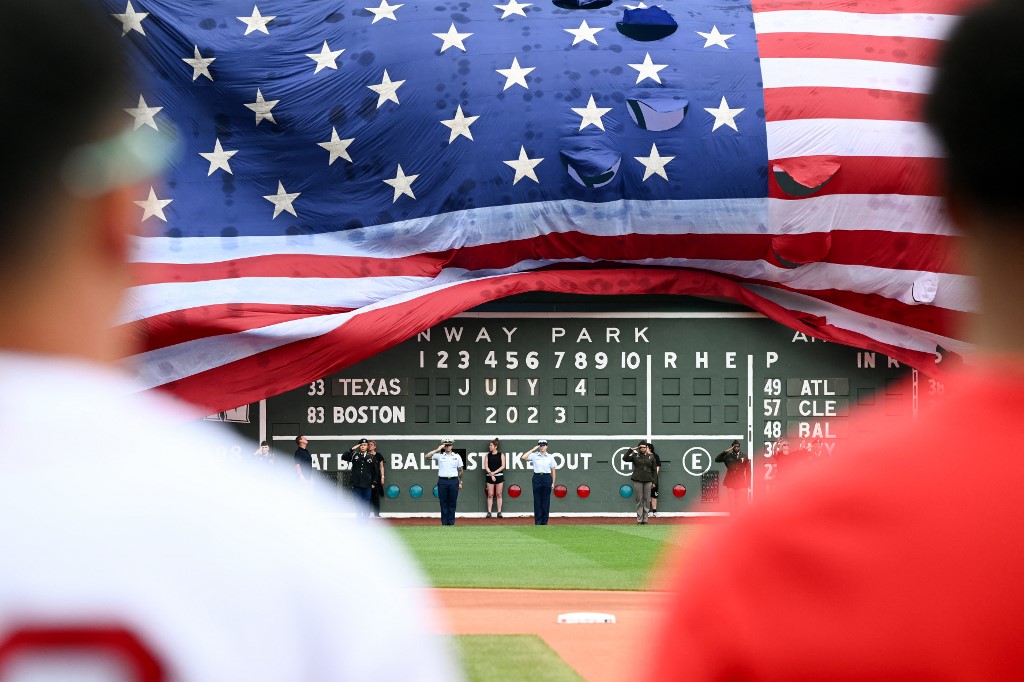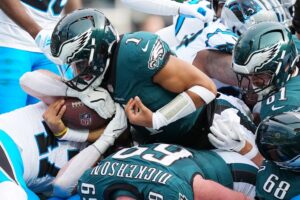DraftKings CEO Bullish on Mobile Gaming’s Future in the US
-
 Bookmakers Review
Bookmakers Review
- December 4, 2024

DraftKings CEO Jason Robins attended the fourth annual Craig-Hallum Online Gaming Conference earlier this week and espoused an optimistic outlook for online casino gaming and mobile sports betting in the United States.
Virtual Gaming 2025
A virtual conference was apropos for the topics at hand, and DraftKings CEO Jason Robins expressed his enthusiasm for the mobile sports betting and iGaming markets in 2025, calling it “another huge growth year.” It was a wide-ranging, free-form discussion of the domestic gaming market, and Robins believes a post-election environment will likely be more amenable to digital gambling legislation.
“Every sign is pointing to that,” Robins said. “Obviously, really excited about state legislative front. 2024 was an election year. It’s always hard to get gaming bills done in an election year. I think this year coming up, 2025, we’re going to get some real momentum, potentially even get some iGaming bills over the hump, which should be great.”
Growing Competition
As far as DraftKings being considered the Robin to FanDuel’s Batman in the duopoly that dominates the US mobile sports betting market, Robins insisted that his company is on solid footing and poised to reverse those roles.
“If you look at it from a handle share standpoint, we’re actually neck and neck, even a little ahead of them,” Robins said. “Player-wise, we’re about even. So, I like the fact that we’re at a place where we get sort of the same benefits of network effects and other kinds of things that come with being a market leader, but we’re actually still staring at so much upside with every move upward of hold rate.”
FanDuel has consistently held a higher hold or win rate than its Boston-based competitor, which often leads to higher revenues despite lower handles in many instances.
Plans to Expand iGaming
The mobile sports betting market has been embraced across the nation, with 38 states, as well as Washington DC, and Puerto Rico, offering mobile, retail, or both forms of sports wagering in their jurisdictions. Of those 38 states, 30 offer online sports betting, which accounts for at least 90% of the volume of sports bets in markets that offer both mobile and retail sportsbooks.
However, iGaming, or online casino gambling, has not been as eagerly embraced even though those revenues dwarf that of mobile sports betting. Only seven states have passed legislation and launched iGaming, including New Jersey, Michigan, Pennsylvania, Connecticut, West Virginia, Delaware, and Rhode Island.
The primary reasons for that reluctance have to do with fears that a 24-hour casino accessible via a PC or mobile device is far too tempting and will lead to a wave of addictive behavior. The other concern is that iGaming may cannibalize the retail casino market, causing diminished revenues and job losses.
However, the National Council of Legislators from Gaming States (NCLGS) recently created model legislation for those state legislators interested in bringing iGaming to their states. And as far as it stealing business from the gambling palaces located in those states, industry insiders argue there is nothing to fear.
iGaming’s Impact on Land-Based Casinos
David Rebuck, former director of the New Jersey Division of Gaming Enforcement, has been emphatic that iGaming has little to no deleterious effect on land-based casinos.
“When you hear the fear-mongering of cannibalization and loss of jobs from internet gaming, I have 12 years of data in New Jersey showing that isn’t true. Online gaming doesn’t cannibalize brick-and-mortar casinos, and it doesn’t hurt casino jobs,” Rebuck said.










